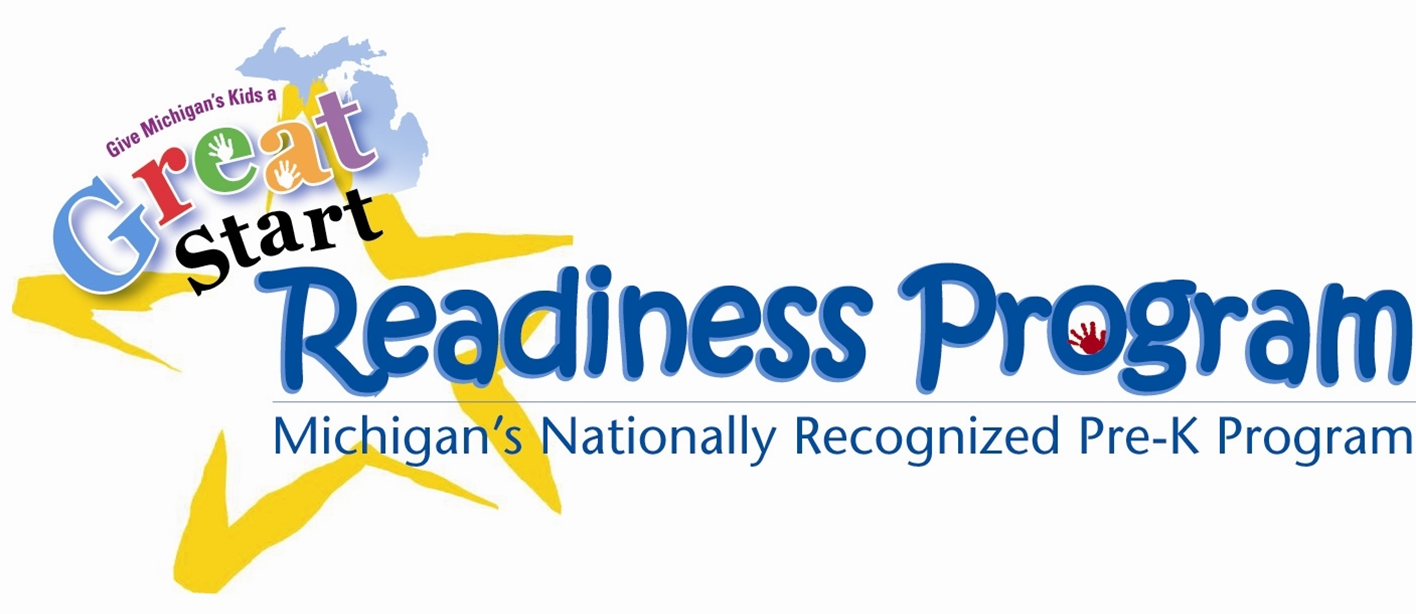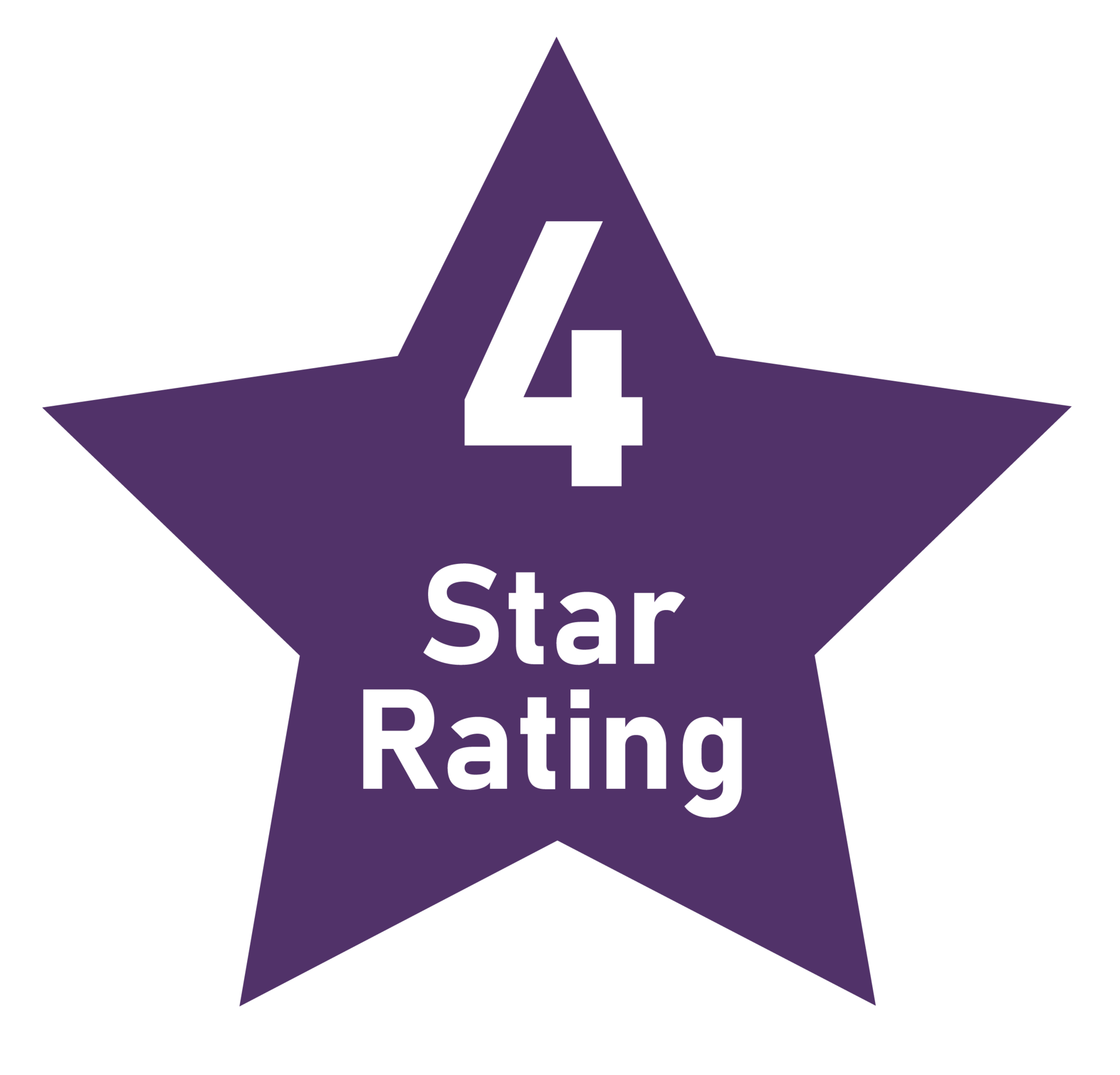
Great Start Readiness Program (GSRP) Preschool
 The Great Start Readiness Program (GSRP) is Michigan's state-funded preschool program for four-year-old children. The program is administered by the Michigan Department of Education (MDE). Classrooms are located in each district throughout the county including: Charlotte, Eaton Rapids, Grand Ledge, Maple Valley and Potterville.
The Great Start Readiness Program (GSRP) is Michigan's state-funded preschool program for four-year-old children. The program is administered by the Michigan Department of Education (MDE). Classrooms are located in each district throughout the county including: Charlotte, Eaton Rapids, Grand Ledge, Maple Valley and Potterville.
Eligibility
- Children need to be age 4 years old on or before December 1 to qualify.
- Children must reside in the school districts of Charlotte, Eaton Rapids, Grand Ledge, Maple Valley or Potterville
- One or more of these circumstances may qualify your child for tuition free preschool:
- Family Income
- Disability or Developmental Delay
- Challenging Behavior
- English as a Second Language
- Parent/Guardian low educational attainment
- Abuse/Neglect of child or Parent
- Environmental Risk Factors including:
- Single parent home
- Sibling issues
- Teen parent
- Homeless or without stable housing
- Child exposure to toxic substances
Classroom Information
- Programs maintain a 1:8 ratio as required by the State of Michigan and are run by highly qualified and certified teachers.
- Classes meet four full days per week. Times will vary by school district.
- Breakfast and lunch are provided regardless of Free & Reduced Lunch status.
Sample Full Day Schedule
8:00 – 8:45 a.m. Arrival/Breakfast/Morning Message
Children enter the classroom at their own pace. Parents/guardians are encouraged to stay until children are ready for them to leave. Children have choices about whether to eat, spend time with books, or interact with adults and one another. Once all children have arrived, adults and children gather together to read a daily message board. This time of the day supports children’s language and literacy development and early mathematics skills.
8:45 – 9:00 a.m. Small Group
During small group time, adults initiate learning experiences based on children’s interests and development. Children explore, play, work with materials, and talk about what they are doing. Individual children explore and use the same set of materials in their own way. Adults extend and add complexity to children’s explorations.
9:00 – 9:10 a.m. Planning
Children gather in a small-group setting and indicate their Work Time plans to adults. Adults use a range of strategies to support children’s planning (e.g., props, area signs, tape recorders, singing, planning individually, in pairs, in small groups).
9:10 – 10:10 a.m. Work Time (one hour of uninterrupted free choice time)
Children initiate activities and carry out their intentions. Children make many choices about where and how to use materials. During Work Time, adults participate as partners in child-initiated play and encourage children’s problem solving both with materials and during times of social conflict.
10:10 – 10:20 a.m. Cleanup
Children and adults tidy the interest areas together, keeping the spirit of play and problem solving alive. Children make many choices during cleanup. Adults accept children’s level of involvement and skill while supporting their learning.
10:20 – 10:30 a.m. Recall
Gathered in small group settings, children choose Work Time experiences to reflect on, talk about, and exhibit. Adults provide a variety of materials and strategies to maintain interest as they follow children’s lead and encourage children to share (e.g., individual props such as puppets, telephones or periscopes, group games using a hula hoop, ball or spinner, re-enacting, drawing, showing and describing a structure or painting). Adults are unhurried in their approach and may complete Recall Time with four or five children each day.
10:30 – 10:45 a.m. Large Group
All adults and children participate in activities planned around children’s interests, developmental levels, music and movement, cooperative play, and events meaningful to children. This is a time of classroom relationship building.
10:45 – 11:30 a.m. Outside Time
Children have many choices about how they play in the outdoor learning environment, much as they do during Work Time indoors. Adults supervise children for safety and also join in their active outdoor play, supporting their initiatives and problem solving. Outside time is minimally 30 minutes each day, excluding time for dressing and transitioning outdoors.
11:30 – 11:45 a.m. Read-Aloud
In small groups, adults read aloud engaging books to children. Adults identify a literacy focus for each reading and carefully plan the read-aloud experience, selecting high-quality books representing a variety of genres. Adults use strategies designed to support and extend children’s learning, including engaging in multiple readings of the same book.
11:45 a.m. – 12:25 p.m. Lunch
Family-style meals support children doing things for themselves (e.g., serve themselves, pour beverages, distribute napkins, wipe up spills). Children assist in preparation and set-up. They choose where they would like to sit and are encouraged to serve themselves. Children choose whether to eat, what to eat, and how much to eat. Adults eat and have meaningful conversations with the children. Children are encouraged to clean their own meal space including disposal of leftovers, wiping of tables, and pushing in their own chairs.
12:25 – 1:25 p.m. Quiet Time/Resting
Resting is a time for sleeping or quiet, solitary, on-your-own-cot play. Resting plans should be individualized to meet the needs of each child. Quiet play could include books, soft music, baby dolls, or fine motor manipulatives.
1:25 – 1:45 p.m.
Wake / Bathroom / Snack – As children wake up, adults and children work together to put away cots and set up for snack. Children are encouraged to clean their own snack space including disposal of leftovers, wiping of tables, and pushing in their own chairs.
1:45 – 2:45 p.m. Planning/Work Time/Recall
A second plan-work-recall sequence, while essentially the same as morning Work Time, may vary slightly from morning expectations while ensuring that children are primarily involved in planning and carrying out their own intentions. Teachers may implement activities with various grouping strategies (individual, very small groups, homogenous) to support children’s learning of targeted skills. At least one member of the teaching team will be assigned to support the majority of children working in open interest areas. A collaborative curriculum-planning approach helps to ensure that the teaching team will meet individual child needs by supporting and extending development, knowledge and skills within children’s play themes rather than pulling them aside for teacher-directed activities. GSRP expectations for active, play-based learning must be met at all times.
2:45-3:00 p.m. Read-Aloud
In small groups, adults read aloud engaging books to children. Adults identify a literacy focus for each reading and carefully plan the read-aloud experience, selecting high-quality books representing a variety of genres. Adults use strategies designed to support and extend children’s learning, including engaging in multiple readings of the same book.
3:00 – 3:30 p.m. Outside/Dismissal
Children have many choices about how they play in the outdoor learning environment, much as they do during Work Time indoors. Adults supervise children for safety and also join in their active outdoor play, supporting their initiatives and problem solving. Children are dismissed for the day upon parent arrival.
(Source: Sample School-Day Routine, GSRP Implementation Manual)
Curriculum
The Eaton RESA uses the Connect4Learning Pre-K Curriculum. This research-based curriculum focuses on math, science, literacy, and social-emotional learning. Children experience high-quality instruction balanced with high-quality play opportunities. Teachers assess children's learning and development using an internet-based child assessment system.
Tuition
Children may qualify for free tuition based on the eligibility circumstances listed above.
Families may qualify for low cost tuition based on eligibility and availability. If you are unsure if you should apply, please contact Eaton RESA at 517.541.8724.
Apply Now!
Some programs are enrolling new students through Fall 2024.
Submit an application at www.eatonpreschool.org.


